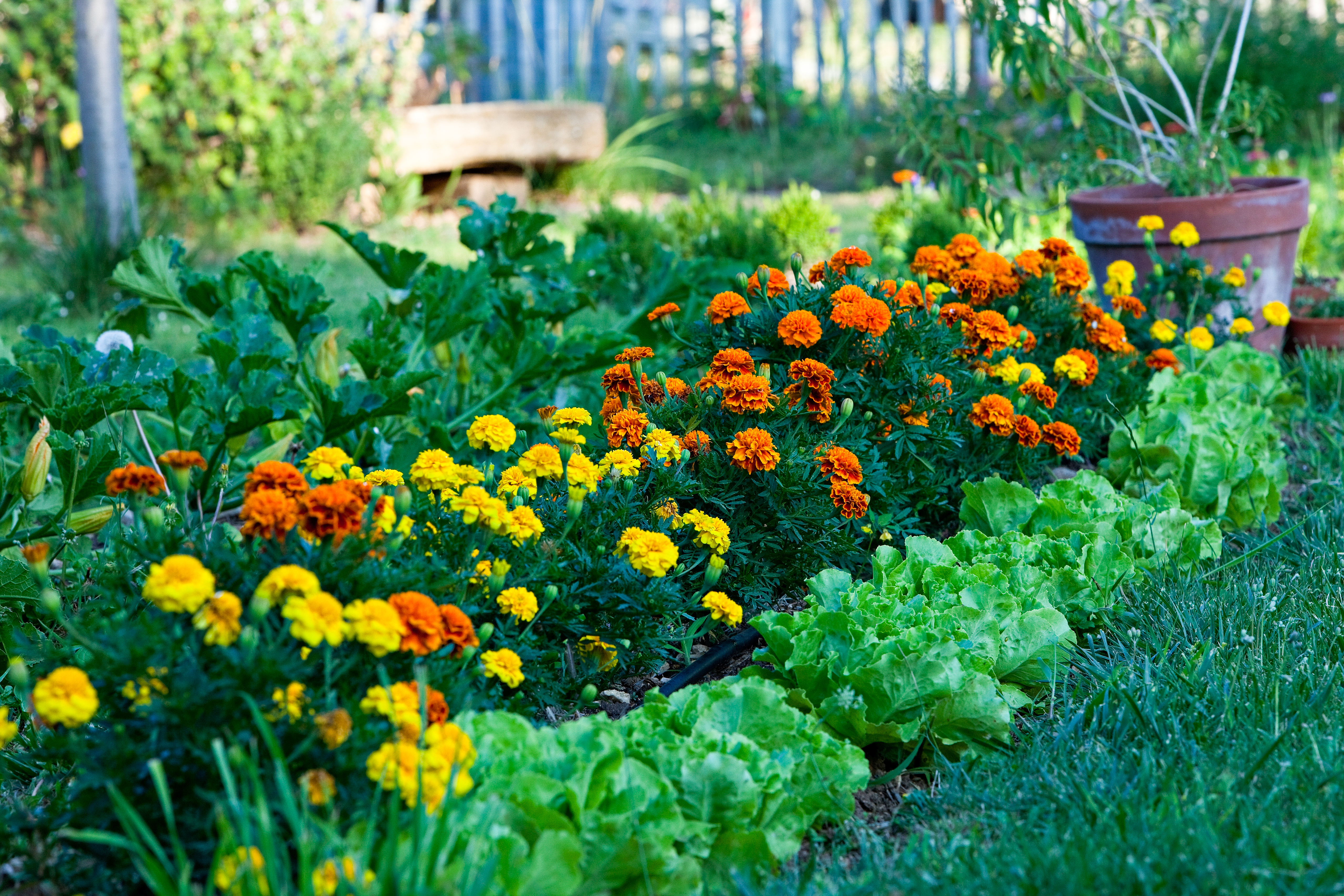
You're sitting and enjoying the perks of the sunshine and a delightful alfresco meal, then all of a sudden you see a swarm of unwanted insects entering your sanctuary, which leads to you trying to swat them away with your hand. It could be the battle between you and the flying ant or the rather loud cicada, or you might just be fighting off an itch from a mosquito. Whatever it may be, I know it can be quite frustrating.
So, how can you deter these unwanted creatures from entering your backyard, without having to use harsh chemicals? Natural methods are now the go-to way of keeping the pests at bay. From mosquito-to-wasp-repellent plants , nature's beauties can keep those not-so-beneficial garden insects under control, with their strong odors and textures.
'These plants not only enhance the garden’s aesthetics and biodiversity but also serve a functional role in managing pests naturally,' says Tony O'Neill from Simplify Gardening. Here is a list of pest control plants that are ideal to have in your backyard, to help prevent those tiny, but mighty creatures from entering your space.
1. Alliums

These big, bold, and beautiful bulbs of color are not just a pretty sight, they also hold benefits when it comes to pest control. Alliums look great in modern gardens, and are good repellent to pests, with their onion-like odor that masks the smell of other plants.
Pest expert Jana McDaniel, and founder of First Saturday Lime, tells us: 'These elegant ornamental onions are known for repelling aphids, carrot flies, and deer. They thrive in well-drained soil and full sun, making them perfect for borders or rock gardens'.
As for hardiness, Paris Lalicata, plant expert from The Sill says, 'Alliums can range in hardiness zones from 3-9 but do the research on the exact species of Allium you want so that you choose one that can grow successfully in your hardiness zone'.
2. Citrus Grass or Citronella Grass
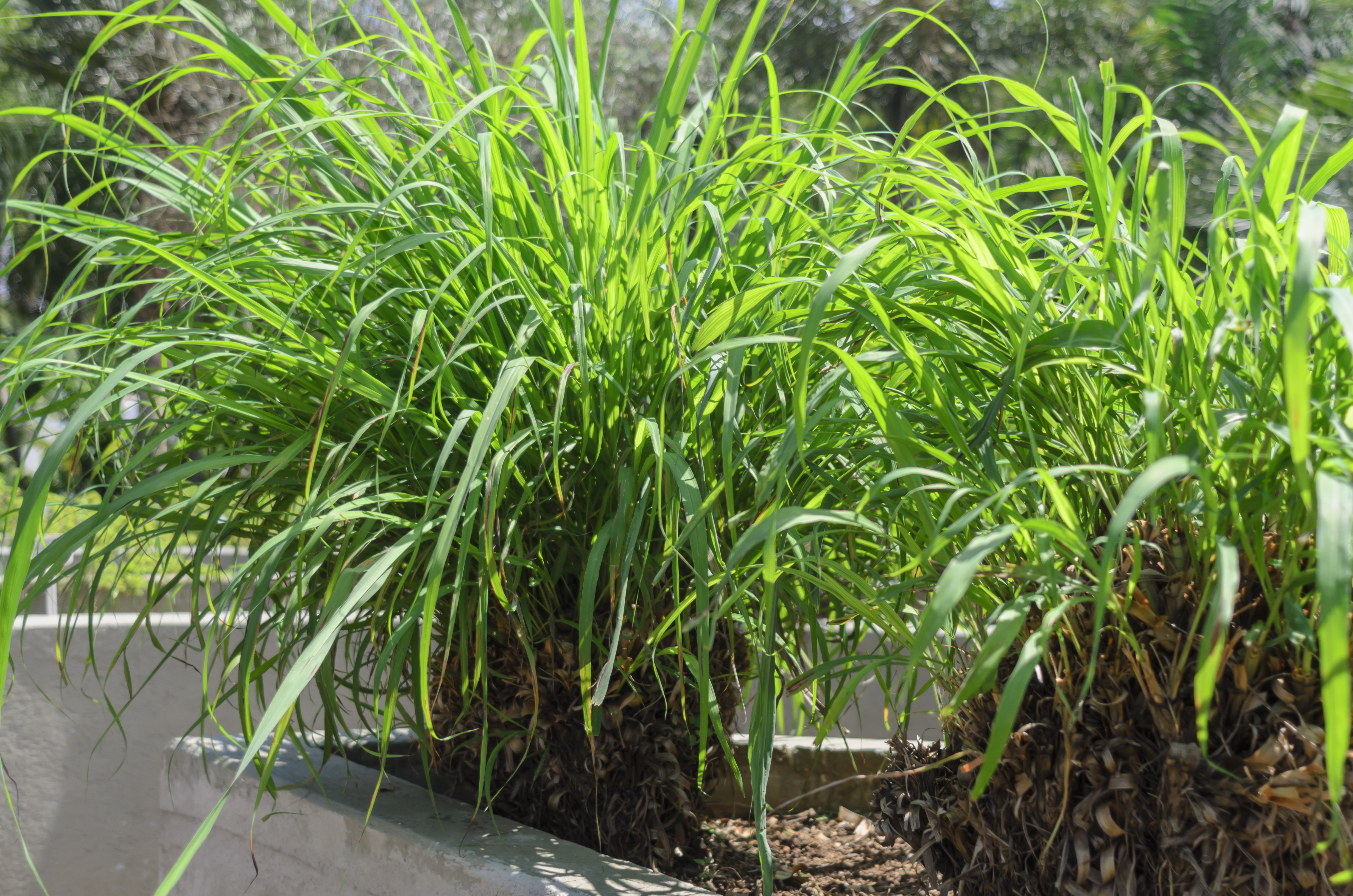
Known for its long and effortlessly beautiful green leaves, ' this plant emits a citrusy scent that deters mosquitoes and ants,' says Jana. She says it also 'prefers full sun and a well-drained soil, making it an ideal addition to herb gardens or containers'.
If you're keen on adding this to your plant collection, Paris explains that citrus grass, which is more of a tropical plant, is best suited for 'the warmer parts of the country (zones 9-11). Although it can be grown as an annual in colder climates during the summer months or brought indoors for the winter'.
3. Peppermint
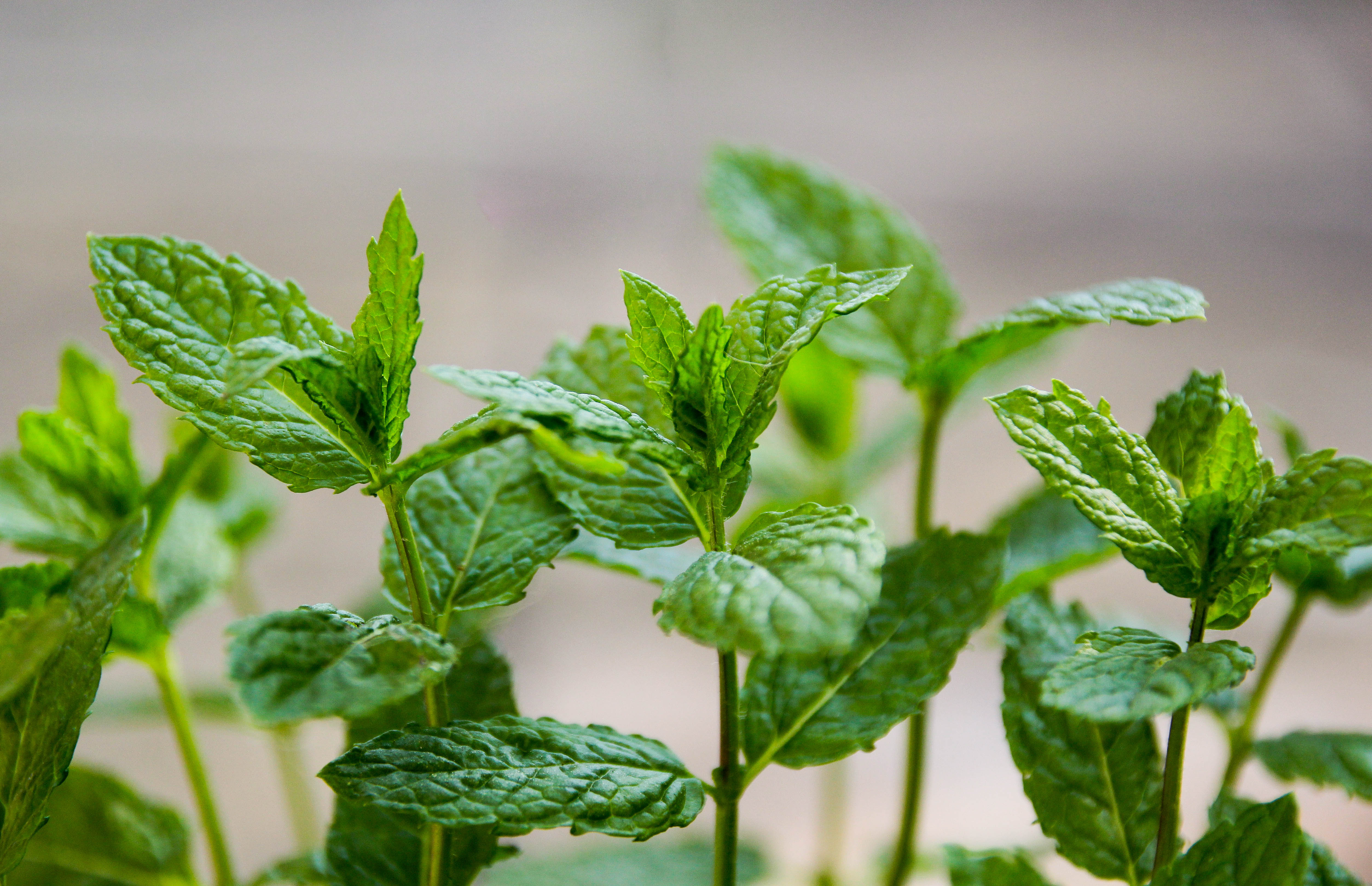
Indigenous to Europe and the Middle East, peppermint is now widely spread around the world. The much-loved wasp-repellent plant has a cool and refreshing odor, which can be a great source of calmness for you and your garden.
Tony O'Neill, gardening expert from Simplify Gardening says, this strongly scented plant has properties that can repel ants, mosquitos, and even mice.
As for versatility, pest expert and founder of Pest Control Weekly Alex H David notes: 'Peppermint is a versatile herb that not only adds flavor to dishes but also repels a variety of pests in the garden. Planting peppermint in pots or well-drained soil with partial shade to full sun can help deter these pests. Peppermint is a hardy perennial that can spread rapidly, so it's best contained in pots or in areas where it won't overtake other plants'.
Oh and just a small tip. If you're a tea lover like me, try adding a leaf or two into your pot and you'll see the flavors transform into an irresistible concoction.
4. Thyme
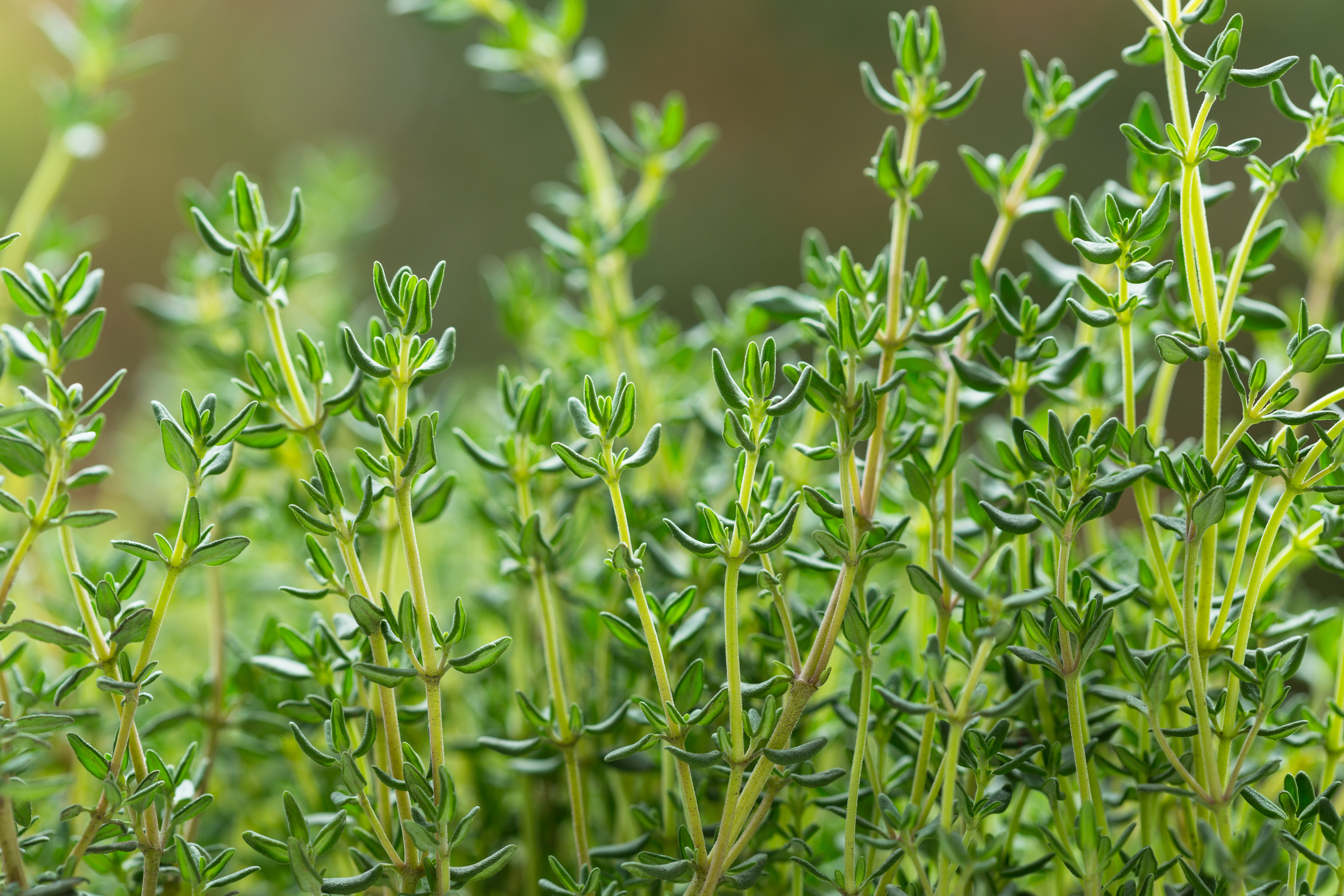
This plant is not just great for cooking and adding flavor to some of your favorite dishes, it is also a one of the best plants to grow along gravel paths. 'Thyme is a fragrant herb that serves as a natural pest deterrent in the garden, as it repels pests such as cabbage worms, whiteflies, and tomato hornworms,' says Alex.
Should you keep it in the sun or the shade? Paris says this plant thrives best in, 'well-draining soil and full sun, perfect for rock gardens or as a ground cover between stepping stones, where it releases its fragrance when stepped on and it is generally hardy in zones 5-9'.
5. Basil

Basil is known for its strong, fresh, and herbaceous aroma with hints of mint and spice. It's also a great plant for when you want to grow a cocktail garden.
Landscaping expert Gene Caballero from Green Pal says, 'this herb repels flies and mosquitoes as well.' Gene recommends planting basil in pots 'near gathering areas or in the garden alongside tomato plants to enhance their growth'.
However, you need to be aware that this plant is not too keen on the cold. 'Basil is sensitive to cold, so it is best to treat it as an annual or bring it indoors in cooler climates', says Tony.
6. Marigolds

Bright colorful blooms with citrusy, green, and subtly spicy notes — these blossoms are a perfect touch to add vibrant tones to your backyard, while keeping the pests at bay. These are also known as trap plants.
Jane says marigolds are powerhouses when it comes to pest control. She adds: 'They repel nematodes, Mexican bean beetles, and even rabbits. I suggest planting marigolds in full sun and well-drained soil, which makes them ideal for borders or vegetable gardens'.
Paris tells us that these blooms are also, 'annuals that are hardy in zones 2-11 depending on the variety'. She says you need to check and choose the right marigold species for it to grow well in your region.
7. Dill
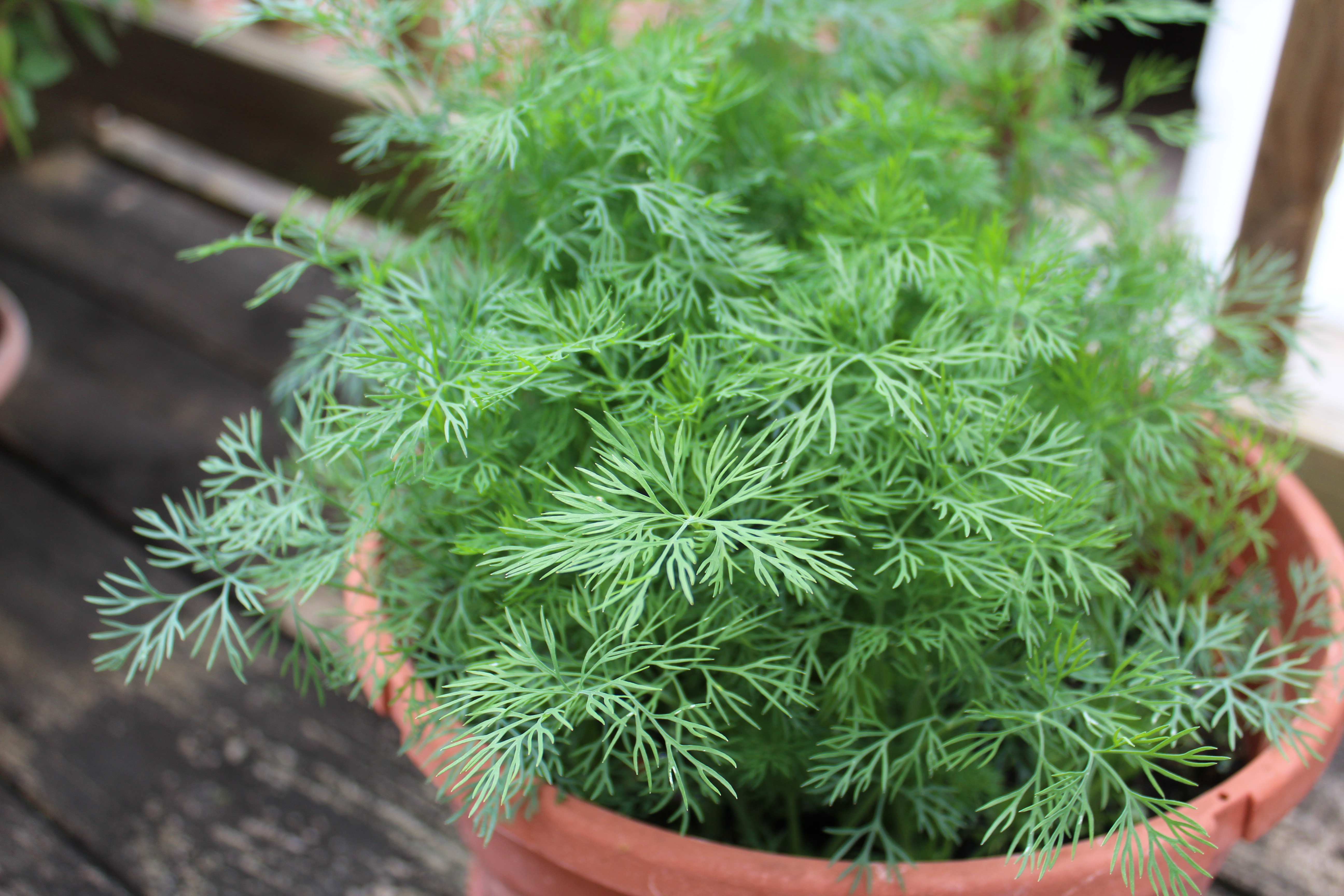
Dill is known to carry quite a strong parsley-caraway smell, but it is still one that many gravitate to. As for pests though, they're not so fond of it.
Paris says this is an 'annual herb that thrives in hardiness zones 2-11 depending on the species,' and says if you're looking to add this herb to your backyard, and wondering on dill plant care, it is best to 'research which species grow best in your region and zone'.
This feathery herb not only adds flavor to your dishes but also repels spider mites, cabbage loopers, and squash bugs. 'It thrives in full sun and well-drained soil, making it a perfect companion plant for cucumbers or squash,' says Jana. 'Dill is an annual, but it readily self-seeds for the next season.'
Are there any beneficial garden insects?
It's important to find environmentally friendly methods when it comes to preventing these little critters from entering your backyard or home. But remember, they're not all bad!
There are some beneficial garden insects which you should be encouraging into your yard. Inviting certain insects to your garden can help your plants thrive for several other different reasons. This includes: pollination, preying on pests, helping to compost decaying matter, and more.







